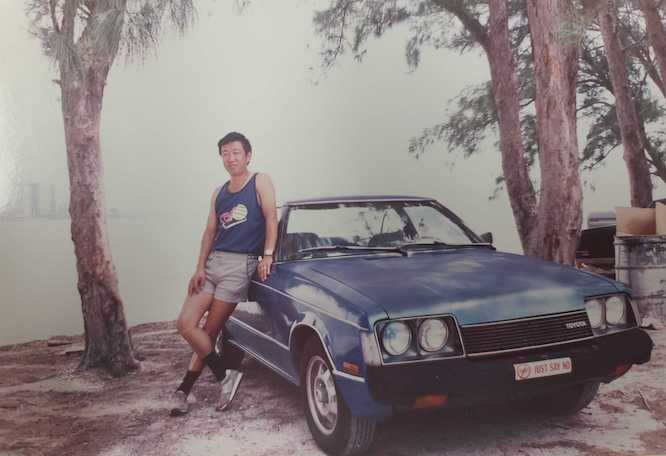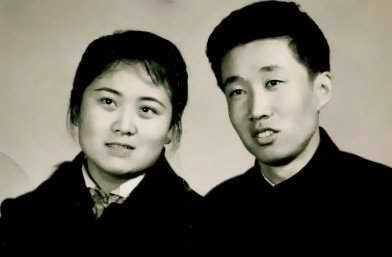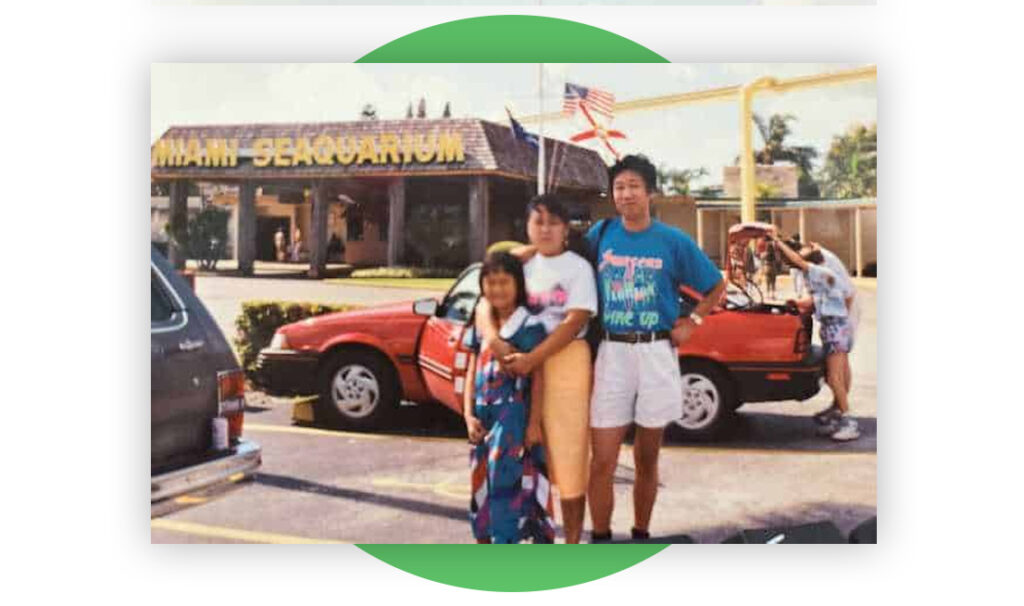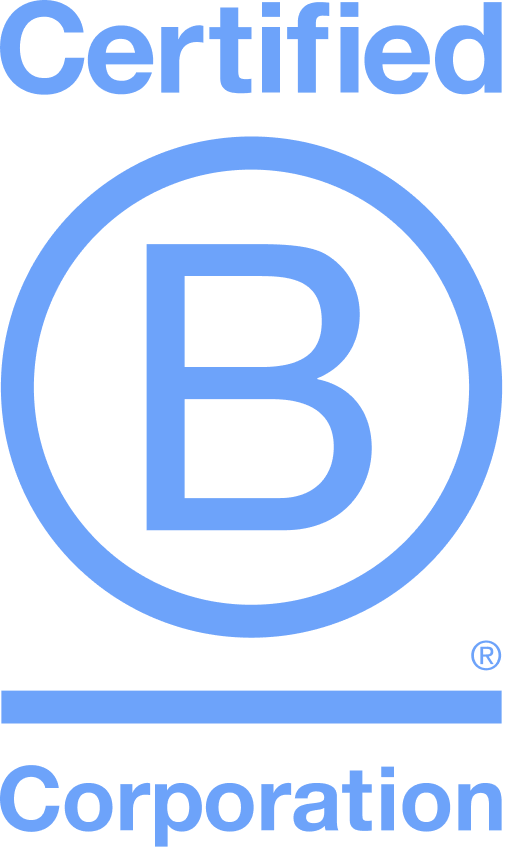One American Dream
My parents and I immigrated to the U.S. in the summer of 1991. I still remember spending our first night in a beat-up, two-door, royal blue Toyota Corolla. The backseat was torn and the A/C wasn’t working well, creating far from the most pleasant of conditions in Miami, Florida. Yet, I was over the moon.

We were in America, and I could practically feel the hope for the future I saw in my parents’ eyes. We owned a car. I tasted cheese for the first time. I saw green-colored grapes. I went up to any dark-haired humans I saw and asked them questions in Chinese, sheltered and naive to think everyone with dark eyes and dark hair was Chinese. My parents exuded excitement from their pores, and it was absolutely infectious.
We were poor, but so very grateful to start a life in pursuit of the American Dream. This hope and aspiration were internalized within me, even as a young child.
Striving for More
As immigrants, failure was not an option for us because we had everything to lose. We had no home to return to, and too much was on the line for us to “make it” and become real Americans. On the rare occasion when my parents were not working multiple jobs or selling random items in the local flea market, we enjoyed family time. This typically involved driving around affluent neighborhoods and dreaming aloud about which house we would one day buy and the family dog we would one day own. We discussed all the details together, from the shape of our roof down to the color of the picket fence.

After years of hard work, my parents bought our house (with cash), purchased our cars (with cash), funded a private school education for me (without financial assistance), and sponsored our family members to join us in the land of opportunities. Yet, there was zero chance they’d allow me to follow in their footsteps.
Paving My Own Path
The reality is that the life my parents wanted for me was anything but theirs. I was conditioned to believe from a very young age that success meant graduating from college and finding an entry-level job at a large U.S. company. So, that’s what I did. I attended college and immediately secured a full-time job as a commercial underwriter at a top insurance company after graduation, getting paid a whopping $24K/year.
I was struggling to make ends meet, not to mention felt unfulfilled and lost in life. On the other hand, my parents were very proud of my professional accomplishments and bragged to all of their friends that their hard work and investments in my future were finally paying off. I was living the life they dreamed of but hadn’t been able to have for themselves, due to language barriers and countless rejections.
Breaking Free From Corporate America
My parents’ lived experiences forced them back into their cocoon, with no other choice than to start a small business. So, when I eventually did voice my frustrations and desire to find a different job, their response was for me to be grateful for what I had. They told me not to ask for higher pay, but to just be thankful that the company was willing to pay me at all. They said not to leave this job because that would be ungrateful. I should feel fortunate because I was employed.
It took me 17 years of clawing through Corporate America to break away from the imaginary shackles these mindsets had put on me, embrace my identity, and truly hear my own voice. I can’t help but wonder if being grateful held my parents back from reaching their true potential. If they were embraced by the greater society, encouraged to walk out of the shadows, and be equipped with the right tools to grow their business, where would we be today?
Finli: Welcoming Immigrants Out of the Shadows
In hindsight, I couldn’t ignore the sense of shame my parents had as successful blue-collar entrepreneurs. Every single dollar they earned, they earned with their blistering hands. They were master negotiators, led loyal teams with empathy, and were always resourceful, as it was second nature for them to do a lot with very little. I didn’t know this as a child and was blinded by an obligation to follow orders in my youth.
But as an adult, I have full conviction that our generation holds the key to completely shifting the perception of blue-collar entrepreneurs and welcoming them out from the shadows. Those who aspire to create a better life for their loved ones and build a legacy for their descendants are worthy of our respect and attention. And, they’re integral to our communities and our mutual success.
Fast forward to 30+ years later and, sadly, not much has changed for those who looked like my parents. Equipped with the burning conviction to wield change, I resigned from Corporate America to build Finli, a comprehensive platform aiming to democratize access to financial resources and elevate small businesses everywhere to new heights.
With Finli, we can equip blue-collar entrepreneurs like my parents with the tools needed to get paid, focus on their work and grow. Best of all, we can help others see them in their truest light: as important, contributing members of our communities of which we should be proud.
Need help getting started? Finli was founded to help small businesses instantly invoice, collect immediate payments, and more seamlessly handle their accounts receivable. Sign up here!




